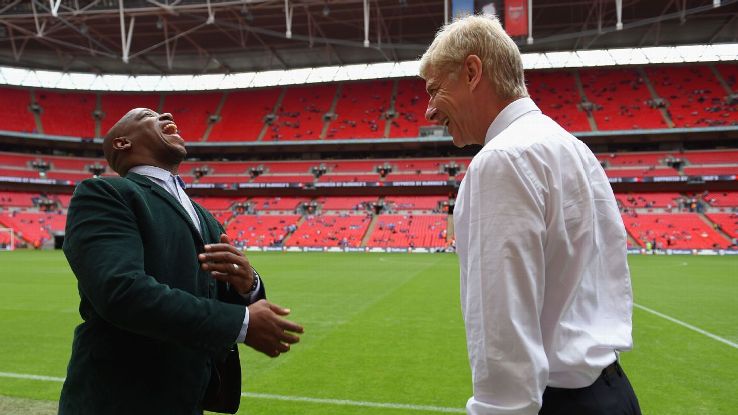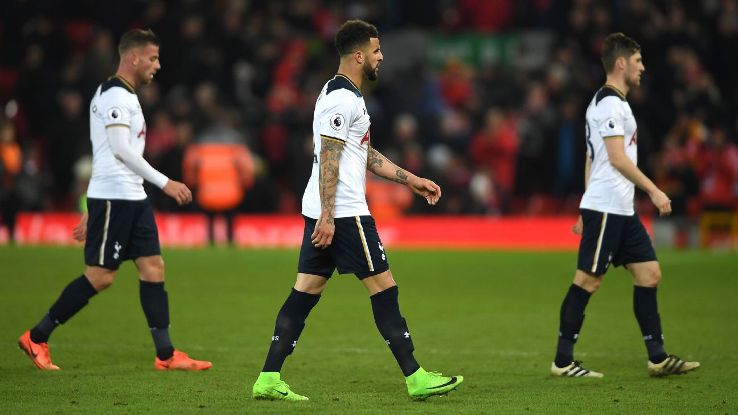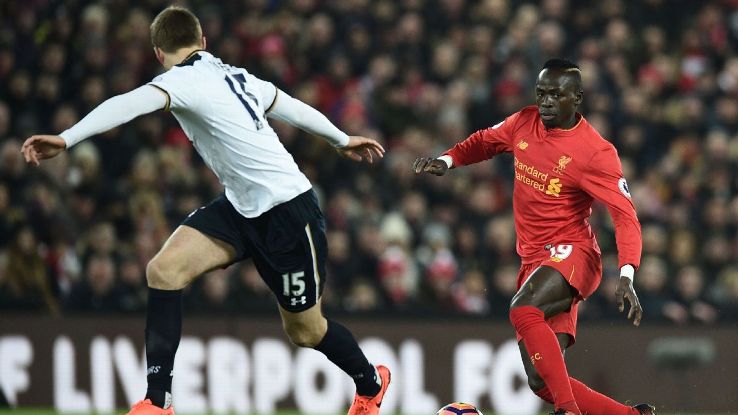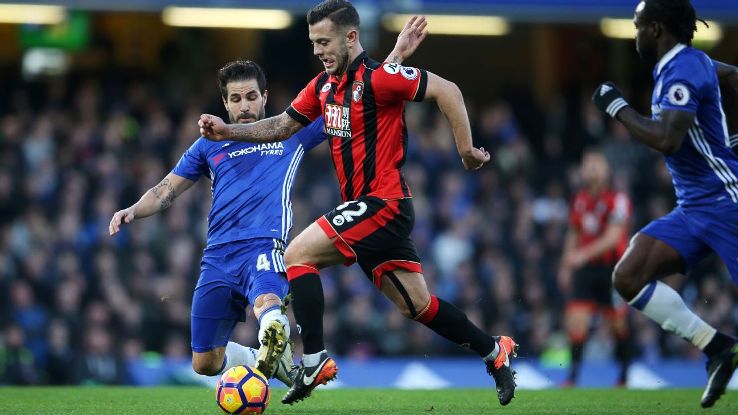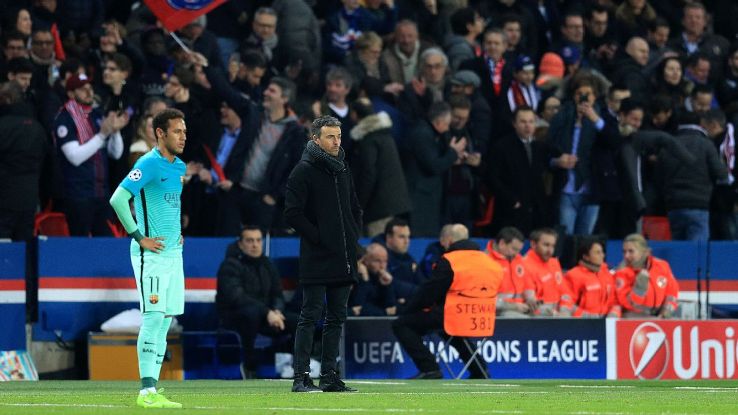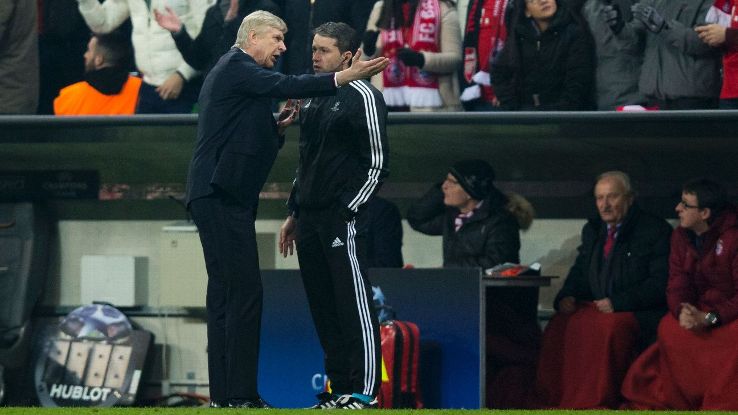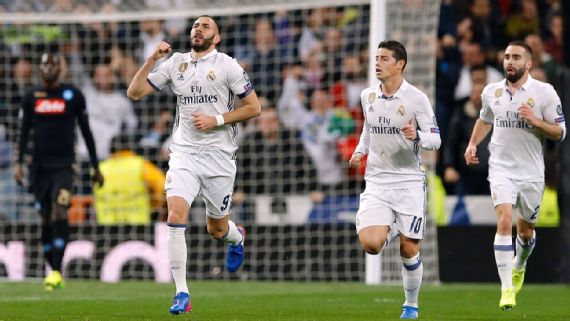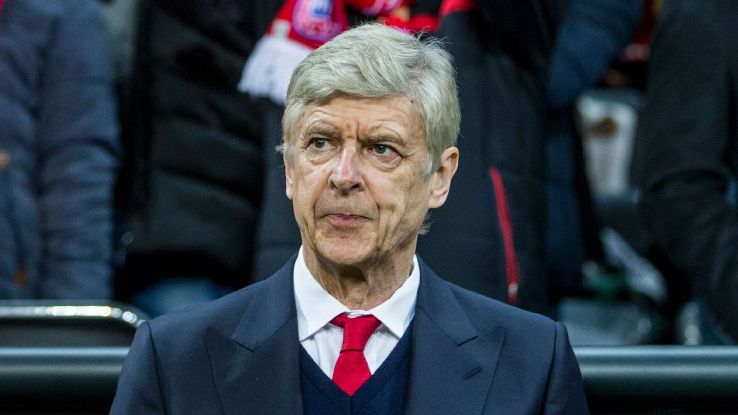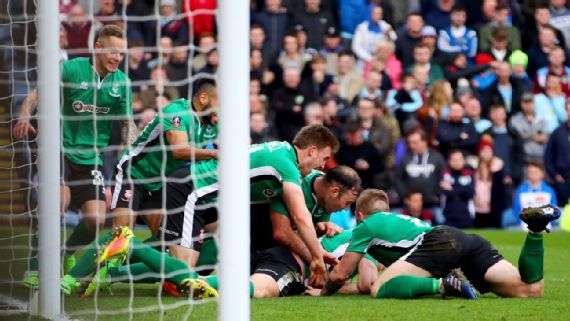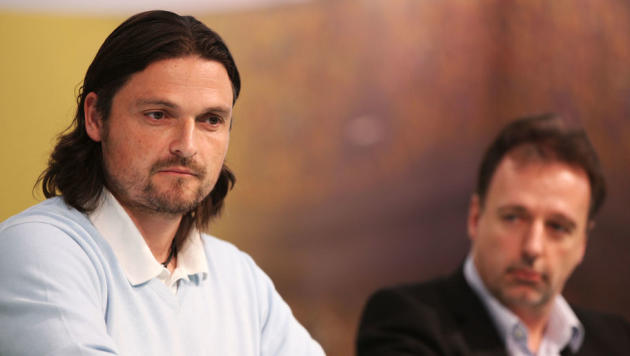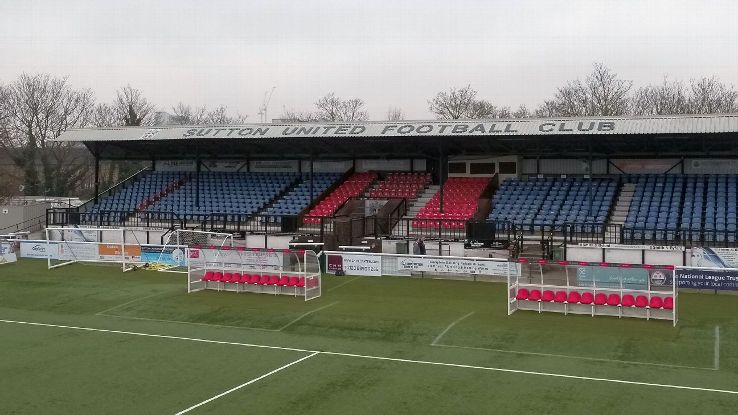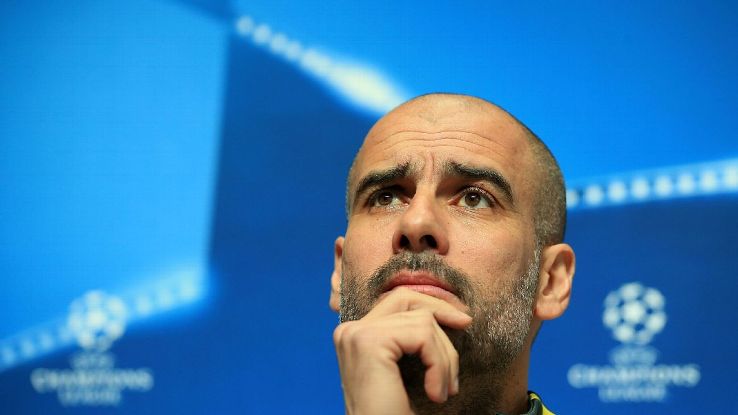Man City's chance to overturn fan distrust of the Champions League
By Mark Ogden, Senior Football Writer
espnfc.com
To suggest that Manchester City and their supporters have a love-hate relationship with the Champions League would perhaps be pushing it too far. Quite simply, there is precious little love for the competition in the blue half of Manchester and it will take more than the visit of AS Monaco on Tuesday to change that.
Theirs is a multi-layered antipathy towards the Champions League and UEFA, which has developed into outright hostility at times. Even the pleading of manager Pep Guardiola earlier this season for a line to be drawn under previous grievances has so far failed to spark a change in the mindset of those who pay to watch from the Etihad Stadium stands.
"I was not here, I don't know what happened, but they must forget what happened in the past," Guardiola said last September, after the City supporters had booed the Champions League anthem prior to the Group C victory at home to Borussia Monchengladbach. "What happened in the past is the past: forget about it. Our fans have to know we need them in the Champions League.
"In the Premier League, everyone comes here, but in the Champions League, they don't. We need them to compete against the best teams in the world. We cannot make something good in the Champions League, this year or next year, without them."
Yet Guardiola, a two-time Champions League winner, had misjudged his audience. Partly, perhaps, because of his Barcelona and Bayern Munich past, he is undoubtedly a part of the European establishment that many City supporters believe have made the club's life so difficult in the competition since Sheikh Mansour bin Zayed al Nahyan provided the platform for them to qualify for the Champions League for the first time in 2011.
City have been a Champions League fixture ever since, but while supporters of Manchester United and Liverpool yearn for the nights when their teams once again take on the likes of Real Madrid, Barca and Bayern -- all regular visitors to the Etihad since 2011 -- such fixtures are greeted with indifference and, at times, anger by City fans.
Sir Alex Ferguson once dismissed City as a "small club with a small mentality" after the unveiling of their provocative "Welcome to Manchester" billboard, which came in the wake of Carlos Tevez's controversial cross-town move in 2009. Some fans of a red persuasion would argue that City's suspicion of UEFA and the supporters' view of the Champions League supports Ferguson's claim, but that would be missing the point. Many City fans believe that their club has been harshly treated by UEFA as their supporters continue to rail against the perceived imbalanced treatment handed out by European football's governing body.
There have been heavy sanctions for breaching UEFA's Financial Fair Play (FFP) regulations (a £49 million fine and squad reduction), charges for booing the anthem, punishment for entering the field of play late -- City were fined £24,735 in April 2012 for entering the field of play a minute late for the second-half of their Europa League tie against Sporting Lisbon -- and a seemingly softer approach to incidents of racism against the club's players.
For example, shortly before receiving their hefty penalty against Sporting, City's opponents from the previous round, FC Porto, were fined around £8,000 less (the fine was a paltry £16,700) after Yaya Toure and Mario Balotelli were subjected to racist abuse in Estadio do Dragao.
City were again exasperated and bemused in October 2014 when, after being ordered to play their Champions League group-stage fixture behind closed doors at the Khimki Arena as a result of racist chanting, CSKA Moscow allowed over 600 supporters to watch from the stands during a 2-2 draw against Manuel Pellegrini's City.
"Why the hell do we not have any fans here?" asked an angry City captain, Vincent Kompany, after the game. "What have our fans done wrong? There's no fairness in it."
That is the backdrop to City's uneasy relationship with the competition, a bitterness further fuelled by contentious refereeing decisions and group seedings over the years, but will it change? With Ligue 1 leaders Monaco due in town for the round of 16 first-leg tie, will Guardiola's plea be heeded by the supporters? Or will they whistle and jeer once again and vote with their feet, choosing to stay home when Leonardo Jardim's team arrive?
"The problems of the past are in the past," Francis Lee, the former City player and chairman, told ESPN FC. "It is time for a positive atmosphere. The fans should embrace the Champions League and get used to being in it because like it or not, Manchester City are now one of the top clubs in the world and they will be competing in it for years to come.
"Anyone who boos the anthem is being childish, in my opinion. As a player, there is nothing better than playing in a fantastic, electric atmosphere with the feel of a big occasion and that is what the team needs in the Champions League."
Lee's view echoes those of Guardiola and senior figures within the club but among the supporters, the sense of injustice still burns.
"The booing is a result of the FFP punishment and how UEFA dealt with the racism towards our players," claimed Phil Harman, a City season ticket holder of more than 20 years. "Also, many of our older fans haven't bought into the Champions League.
"Domestic success still feels more important after so long without any silverware. Also, a lot of City supporters see David Gill [former United chief executive] on the UEFA committee and wonder why the seeding system is designed to help the old elite rather than clubs like City."
With neighbours United classed as European royalty having first played in Europe in the mid-1950s before suffering the tragedy of the 1958 Munich Air Disaster, which saw 23 killed (including eight players), there remains a sense of City regarding themselves as outsiders among the elite.
City's success in recent years, in contrast to United's post-Ferguson decline, has done little to alter that perception but the club is making strenuous efforts to entice their supporters through the door on Champions League nights. Against Monaco, under-16s can watch for just £7.50 while adult tickets start at £30: admission prices that reflect the largely working-class, low income demographic of the City fan base.
But old grievances die hard.
"We still feel like outsiders," claimed Mark Gardner, a season-ticket holder since 1989. "UEFA just want to look after the big clubs and keep the status quo. The elite don't want clubs like Manchester City coming along to threaten their success and that has been reflected in the decisions that have gone against us, on and off the pitch.
"We never get anything against the likes of Real Madrid, Bayern or Barcelona but their players surround officials, they hound them in packs, yet nothing ever happens.
"Like many City fans, I don't enjoy the Champions League. I don't enjoy the football and I don't enjoy the diving and the other nonsense that goes on in the competition. I only go along in the hope that we win it. If we do, I'll have seen it all as a City fan: I think I will then retire and never go to another Champions League game!"
Guardiola's appointment as manager, with former Barcelona vice-president Ferran Soriano working alongside him as chief executive, has given City a fast-track route to acceptance within the European elite and their ongoing presence will ensure previously closed doors are opened to the club. But ultimately, what happens on the pitch will define City's relationship with the Champions League and Guardiola insists that everybody at the club should relish the opportunity to face Monaco on Tuesday.
"I think of the passion and how beautiful it is to be here again," Guardiola said. "To be here is not easy. A lot of clubs, big clubs, are not here, so we are lucky guys. This club knows that perfectly, better than anyone else. The recent history is good but for a long period of history, Manchester City have not been here.
"We are here now, so I want the players to enjoy the moment."

